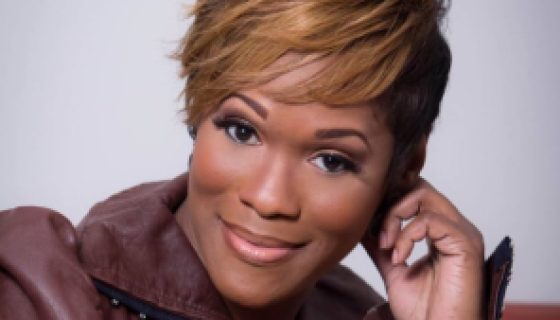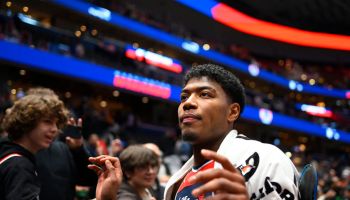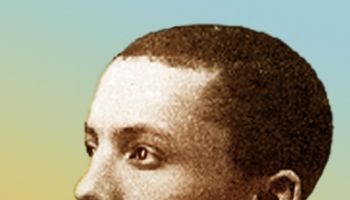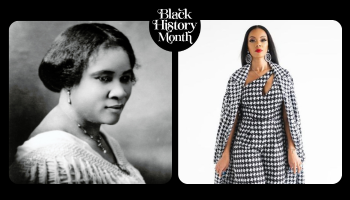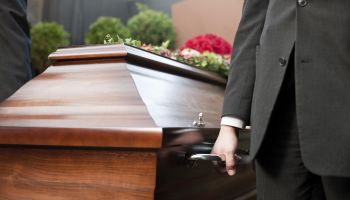VIA THE WASHINGTON POST:
Washington Capitals owner Ted Leonsis and the estate of sports entrepreneur Abe Pollin have reached an agreement on a price for Leonsis to purchase the Washington Wizards and Verizon Center, overcoming the single biggest obstacle in his path to take ownership, according to several sources familiar with the negotiations.
The entire value of the team and arena is pegged around $550 million, according to sources, although the exact cost to Leonsis’s group is far less than that because it owns 44 percent.
If the agreement is finalized, it would make Leonsis one of the most powerful figures in Washington business and sports. He would have control over a mid-Atlantic sports and entertainment empire spanning three professional leagues and an arena that hosts everyone from presidents to rock bands, as well as performers including the Ringling Brothers and Barnum & Bailey Circus. In addition to hockey’s Capitals, he would also control basketball’s Wizards and Mystics, the women’s pro team.
The sources cautioned that the deal could fall apart if the sides fail to reach agreement on other, non-financial issues such as the operations of the arena in the period before Leonsis takes control. But reaching a price was critical to clearing the way for Leonsis’s eventual ownership, sources said.
“The financial terms are tentatively agreed to,” said one high-level negotiator for the Pollin side, who spoke on condition of anonymity for fear of upsetting the talks. “In every complex legal agreement, there are significant non-financial terms. The parties are negotiating those in good faith. I certainly hope we will cross the finish line. But no guarantees.”
Spokesmen for both sides declined to comment.
The exact cost to Leonsis is clouded by a number of factors, including $250 million in debt on the arena and the Wizards that the Leonsis group will fully assume. After the debt, the net cost to Leonsis to buy the rest of Pollin’s empire would probably be about $170 million, according to sources who spoke on the condition of anonymity because they were not authorized to discuss the deal. Perhaps $50 million of that would be paid in cash, and the rest would probably be financed, according to sources.
The agreement must receive approval by a three-quarters majority of the NBA’s 30 owners, which means 23 votes to approve. Sources said the NBA is aware of the status of the negotiations and timetable for a closing. An agreement must also clear a U.S. Justice Department antitrust review. If Leonsis closes by June 1, his group would be able to make decisions on the NBA draft and free agency, both of which are critical to the team’s success.
The agreement-in-principal follows three months of negotiations between Leonsis’s closely held sports investment group, known as Lincoln Holdings, and the estate of Pollin, who died Nov. 24 at 85.
Ownership would give Leonsis overall control over a state-of-the-art arena that hosts 220 or so events a year and allow him to start directing arena revenue to the hockey team, which has been losing money for years despite its recent success. The Capitals received no revenue from the arena’s estimated 108 luxury suites and 3,000 club seats, which had been in Pollin’s control.
Leonsis is expected to reorganize the Pollin organization, which has been known as Washington Sports & Entertainment, and bring a rebirth to the ailing Wizards, one of the worst teams in the NBA with a record of 21-49.
Representatives of Leonsis, 54, and of the Pollin estate have been in negotiations since Jan. 6, and had narrowed the difference in the cost to Leonsis from a gap of $25 million in early February to about $5 million several weeks ago. The two sides closed the difference in recent days.
The tentative agreement is the result of a detailed process that Leonsis and Pollin agreed to when Leonsis bought the hockey team in 1999.
Both sides hired investment bankers to advise them. Leonsis retained Steve Greenberg of Allen & Co., a New York boutique investment bank. Greenberg’s portfolio includes working on the sale of baseball’s Milwaukee Brewers in 2004 and the sale of the NBA’s Cleveland Cavaliers in 2005.
The estate’s trustees — Pollin’s widow, Irene; their son, Robert; and Abe Pollin’s longtime attorney, David Osnos — hired Goldman Sachs. While the talks ensued, Washington Sports installed a management structure that made Irene Pollin principal owner and Robert Pollin chief executive. Another son, James Pollin, was president. Osnos and Richard Brand were legal counsels to management.
The discussions in recent weeks revolved around the details of the Wizards’ expected financial condition over the next year. The Leonsis group did not want to purchase a team burdened by huge salaries and heavy losses, which could hamper Leonsis’ attempt to rebuild the franchise.
Over the last two months, however, the Wizards unloaded several stars with big salaries, including Antawn Jamison, Caron Butler, Brendan Haywood and DeShawn Stevenson, moves that saved the organization nearly $3.2 million. The team also saved money because it was no longer subject to an NBA luxury tax for exceeding the limit that franchises are allowed to spend on their entire team payroll.
Sources said the player trades helped clean up the team’s balance sheet and clear the way for a deal that would allow the team to get a new start under new ownership.
In late January, the discussions appeared to unravel as the Pollin estate declared the right to put the franchise and arena on the open market, which contradicted Leonsis’s assertions that he had exclusive rights to negotiate to buy the team.
The discussions were also stalled for two weeks because of a pair of giant snowstorms last month that occurred only a week apart.
Leonsis bought the Capitals, as well as a share of the Wizards and what was then called MCI Center — it was renamed in 2006 — from Pollin in 1999.
If there had not been an agreement, the process would have proceeded to respective appraisers, who would have tried to reach a deal. Even if the appraisers did not agree and the team was put on the open market, Leonsis would have had the chance to match any outside offer. He also could have sold his 44 percent of the Wizards and Verizon Center to the new buyer.
The most recent estimate by Forbes magazine, published Dec. 9, estimated the value of the Wizards at $313 million, down from $353 million the previous year. That ranked the team 19th in the NBA. According to Forbes, the Wizards made a $4.9 million profit for the 2008-09 season.
Verizon Center seats 20,173 for basketball and 18,277 for hockey.
One wild card was star guard Gilbert Arenas, who had been the face of the franchise for several years until he was suspended for the rest of the season in January by NBA Commissioner David Stern for bringing guns to the locker room. Arenas pleaded guilty Jan. 15 in D.C. Superior Court to a felony count of carrying a pistol without a license. He will be sentenced Friday.
Arenas signed a six-year, $111 million contract extension in July 2008 but missed most of the 2007-08 and 2008-09 seasons because of knee injuries. With $80 million remaining on his contract, his situation — and whether he would be viewed as an asset or a liability to the franchise — has an impact on the value of the franchise, according to people close to the talks.
Then there is the team’s performance on the court. Underperformers for decades, the Wizards reached the playoffs for four straight years until 2008-09, when they finished with 19 wins and 63 losses, tying the franchise record for fewest victories in an 82-game season.
Even in these lean times, the Leonsis group should have no trouble raising the money. His partners in Lincoln Holdings include Raul Fernandez, former chief executive and founder of Proxicom; Richard Fairbank, founder and chairman of Capital One; Jack Davies, former president of AOL International; Jeong Kim, head of Bell Labs; former software executive Rick Kay; BET co-founder Sheila Johnson; real estate entrepreneur Dick Patrick; Michelle Freeman, widow of former Lincoln partner Josh Freeman; Mark Lerner, son of Washington Nationals owner Ted Lerner; and lawyer George Stamas.








